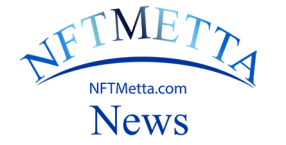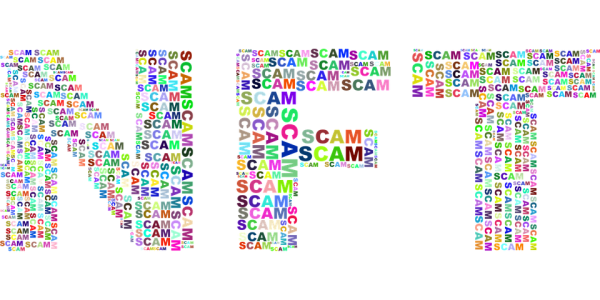February 1, 2024
By Anjali Kochhar
“By leveraging blockchain, healthcare providers can streamline processes, enhance transparency, and deliver more personalized care, ushering in a new era of innovation and efficiency in the industry,” said Google’s CEO Sundar Pichai.
Blockchain technology has created waves around the globe for various reasons, positive or negative. One of the most promising uses of blockchain technology can be in the healthcare sector. Especially in India which houses more than a billion people and needs to cater for the medical requirement for this large number. Blockchain technology can be used in the authentication of drugs, medical records of patients, insurance fraud, data breaches, etc Doctors and patients can benefit from blockchain technology. It will improve the complicated methodology of data storing and establish a more reliable, secure system for repositories. Additionally, blockchain can expedite the insurance claims settlement process to a great extent by eradicating third-party involvement.
Anil Kakani, VP and India Head at Algorand Foundation, says “In a market like India where control of data is still very fragmented, the use of blockchain solutions can help deliver greater transparency, integrity, and automation while still retaining patient privacy and control over one’s data”.
As per the National Association of Software and Service Companies (NASSCOM, a non-profit industry association) report, the healthcare market size in India was valued at $372 billion in 2023 and is expected to grow at a CAGR of 20% approx. till 2030.
With the numbers this big and the stakes so high, the biggest challenge faced in healthcare today is ensuring the safe and efficient management of patient’s medical data.
Safeguarding Pharma Supply Chains with Blockchain Technology
To restrict the use of counterfeit drugs, Indian government think tank Niti Ayog, Oracle, Apollo hospitals, and Strides Pharma Sciences had teamed up to manage a real pharma supply chain using blockchain technology. This is to restrict the usage of fake drugs in many countries where counterfeit drugs are a big problem.
An estimated 1 in 10 medical products in low-and-middle-income countries is either substandard or falsified, according to a World Health Organisation (WHO) report.
Blockchain can help the creation of a track and trace system from origin to manufacturing plants to final buying by consumers. The entire chain can be checked in case of discrepancy.
“Pharmaceutical supply chains suffer from limited track-and-trace capabilities that enable counterfeiting of drugs to thrive. Each drug packet could be assigned a unique ID on the blockchain to create an immutable record of its journey through the supply chain. Manufacturers, distributors, transporters, and pharmacies become nodes in the network. Every exchange of custody is recorded on the chain. The retail service point can scan the code to view the drug’s origin and trail before dispensing it to patients.” said Kakani of Algorand.
Additionally, various countries in the world are using blockchain technology for government data-keeping. These are Estonia a pioneer in implementing blockchain technology at the national level for medical records. United Arab Emirates (UAE), the UAE government launched the Emirates Blockchain Strategy 2021, Georgia has leveraged blockchain technology to validate property-related government transactions, Singapore through its Project Ubin, Sweden again for land-ownership authority, Australian Securities Exchange (ASX) for managing equity transactions Alibaba in China provide medical services, In Russia, the Ministry of Health maintains healthcare data-sharing system and in the USA, blockchain solutions are being used to mitigate medical fraud.
Bruce Broussard, CEO of American healthcare insurance company Humana, predicts that “Blockchain will revolutionize healthcare payments and contracts, streamlining processes for efficiency, transparency, and cost reduction.”
Blockchain’s Promise in Clinical Trial Data Integrity
Blockchain’s Impact on Clinical Trials in Healthcare – Blockchain technology has numerous potential applications in healthcare, one of which is in the realm of clinical trials. Using blockchain to maintain records of consent from trial subjects could prevent tampering and ensure accuracy.
This ledger could also serve as a repository for readily available trial subjects, facilitating researchers’ access to participants when needed. Several other promising opportunities in this domain warrant exploration in the future.

Organ Donation and Transplantation – Another area ripe for blockchain integration is organ donation and transplantation. This sector requires seamless coordination and real-time data exchange among stakeholders like donors, practitioners, hospitals, and transportation systems.
Currently, the lack of accurate data contributes to issues such as illegal organ trade and inefficient organ delivery. By connecting all parties involved through a blockchain network, a transparent and timestamped record of organ availability, status, and location can be maintained. Such a system would streamline processes, mitigate existing challenges, and ensure the security of stakeholders’ data.
Blockchain technology presents a transformative opportunity for the healthcare sector, particularly in India with its vast population and growing healthcare needs. From enhancing drug authentication to securing patient records and streamlining supply chains, blockchain holds immense potential to revolutionize healthcare delivery and management.
Collaboration among stakeholders and innovative implementations will be key to realizing these benefits and ensuring the integrity and efficiency of healthcare systems worldwide.
About the author
Anjali Kochhar covers cryptocurrency stories in India as well as globally. Having been in the field of media and journalism for over three years now, she has developed a sharp news sense and works hard to present information that goes beyond the obvious. She is an avid reader and loves writing on a wide range of subjects.



